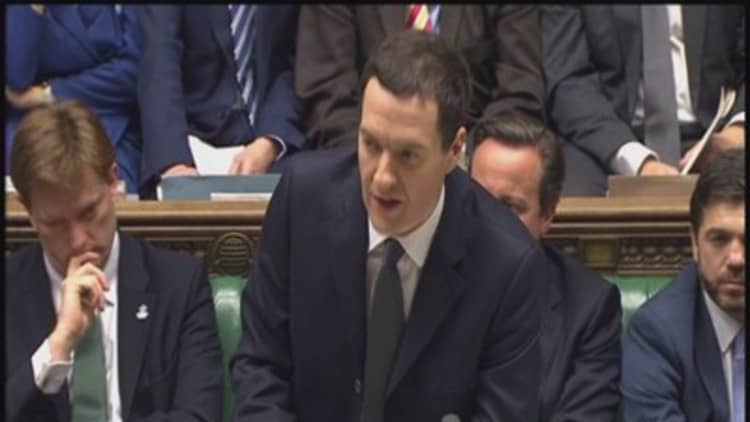How much would you pay for a drug that could prolong your life? $1 million? Try 10 times that amount.
The U.K.'s National Health Service (NHS) has been given permission to roll out its most expensive treatment.
Read MoreLesson for Obamacare? UK health service 'in crisis'
The Soliris drug will be used in the treatment of a rare blood disorder and will cost approximately £340,200 per patient during their first year of treatment, which could add up to a whopping overall bill to the government of £10 million ($15.2 million).
The drug, whose trade name is Eculizumab, will help treat a life-threatening, genetic disorder that affects up to 200 Brits. The drug would help patients live an independent life for an extra 25 years.
The National Institute for Health and Care Excellence (NICE), an NHS drug advisory body has approved funding for Eculizumub, to fight the disease dubbed 'aHUS' (atypical Haemolytic Uraemic Syndrome) which affects vital organs such as the brain, heart and kidneys, according to the aHUS Source website.
Read MoreHealthCare.gov breaks 7.1 million enrollments
At the moment, aHUS patients are treated with blood and plasma transfusions, kidney transplants and dialysis.
In response to the announcement, Andrew Dillon, NICE's chief executive said that they were "pleased to be able to recommend Eculizumab for funding" as "aHUS is a very distressing condition that imposes a significant burden both on those with the condition and their carers and families."

NICE stated that in the drug's initial year of usage, the NHS may fork out up to £58 million, which could surge to £82 million five years on - if it accounted for all of its patients receiving treatment.
To combat the cost, NICE recommends further exploration into aHUS and the drug, such as modifying the drug's dosage.
A NICE report published last October suggests that 56 patients are receiving eculizumab under an interim commission policy by the NHS.
NICE proposed that Eculizumab should only be financed "if important conditions are met, including the development of rules for starting and stopping treatment for clinical reasons" said Dillon in the report.



